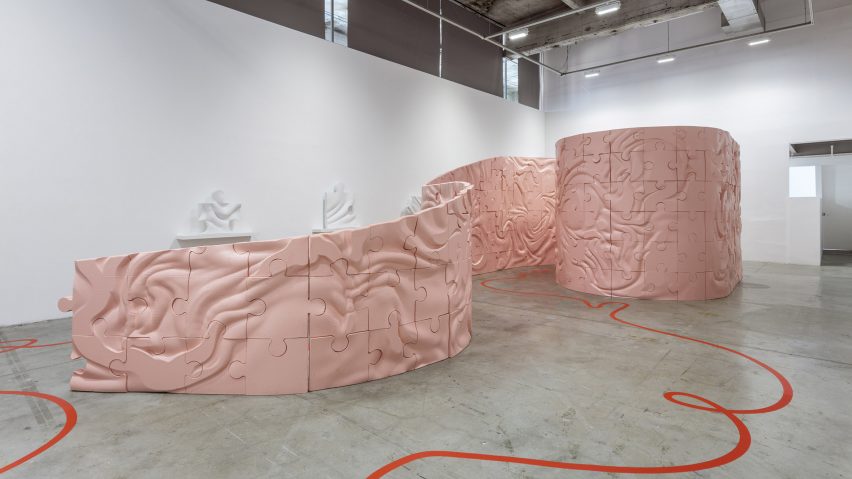
Intricate puzzle pieces make up brain-like labyrinth at SCI-Arc Gallery
Design group Brash Collective has created a sculptural labyrinth of puzzle pieces using CNC milling in a non-traditional way for the Intentionally Opaque installation at SCI-Arc Gallery.
The collective, co-founded by SCI-Arc design faculty member William Virgil and architectural designer Majeda Alhinai, wanted to explore ideas of mindfulness and self-awareness through the work.
They came up with an installation that could be walked through, its detailed surface pattern echoing the ridges and furrows of the human brain.
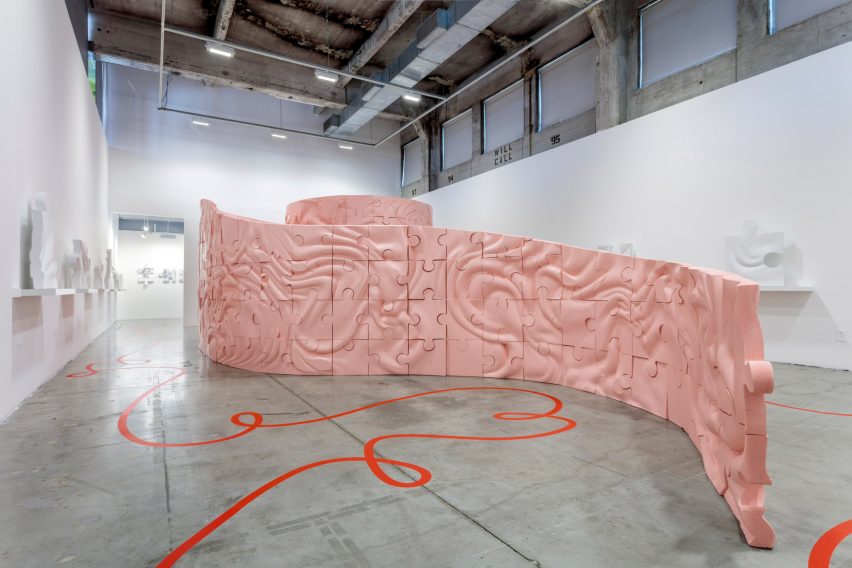
The decision to subdivide the walls into puzzle pieces came because they wanted to take an unusual approach to the building brick, one that would require no bonding material.
To achieve the precision required of both the patterning and puzzle edges, they used computer numerical control (CNC) machines, a process that Virgil believes is rare in sculpture, though it is common in other areas of design.
"We consider this to be the 'modern renaissance' when it comes to sculpting," he said.
"Digital tools today allow us to bypass the lengthy and laborious process of what 17th-century sculptors would have to endure, while maintaining the integrity of detail."
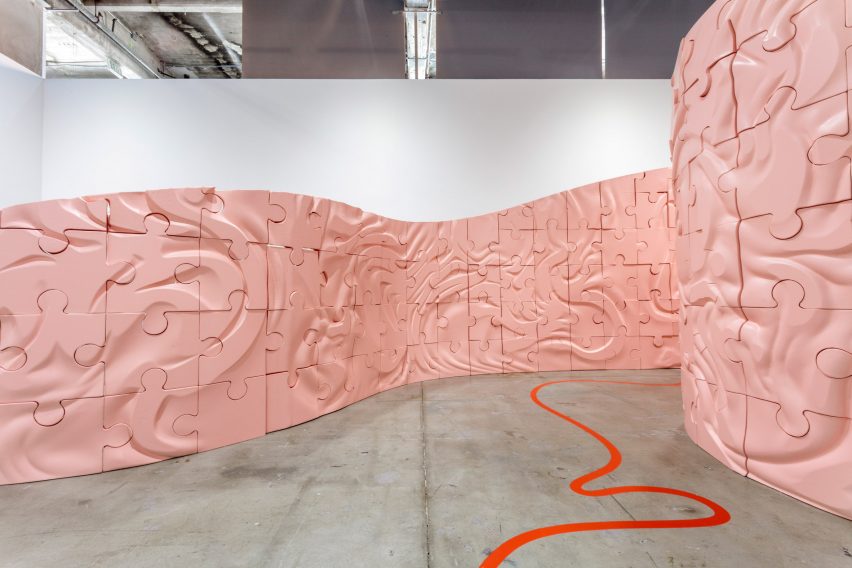
The CNC machines carved out the puzzle pieces from high-density urethane (HDU) boards, and each piece is unique.
Intentionally Opaque takes the form of a labyrinth as a way to explore emotional health. The designers intend it to function on both a symbolic and literal level — it is an analogy for the process of coming to self-awareness, but it is also a literal place that people can enter to practice mindfulness and self-reflection.
"Labyrinths are portals to another world," said Virgil. "When we are in our minds, we are in another world. We express this sentiment in our desire to create a body of work that exemplifies 'otherness' in the physical world — walking the labyrinth is symbolic of understanding oneself."
"Intentionally Opaque is an area where one can retreat to reset. It's a journey that retraces our commitment to us, where the end is the beginning of a new path, and the beginning culminates a journey."
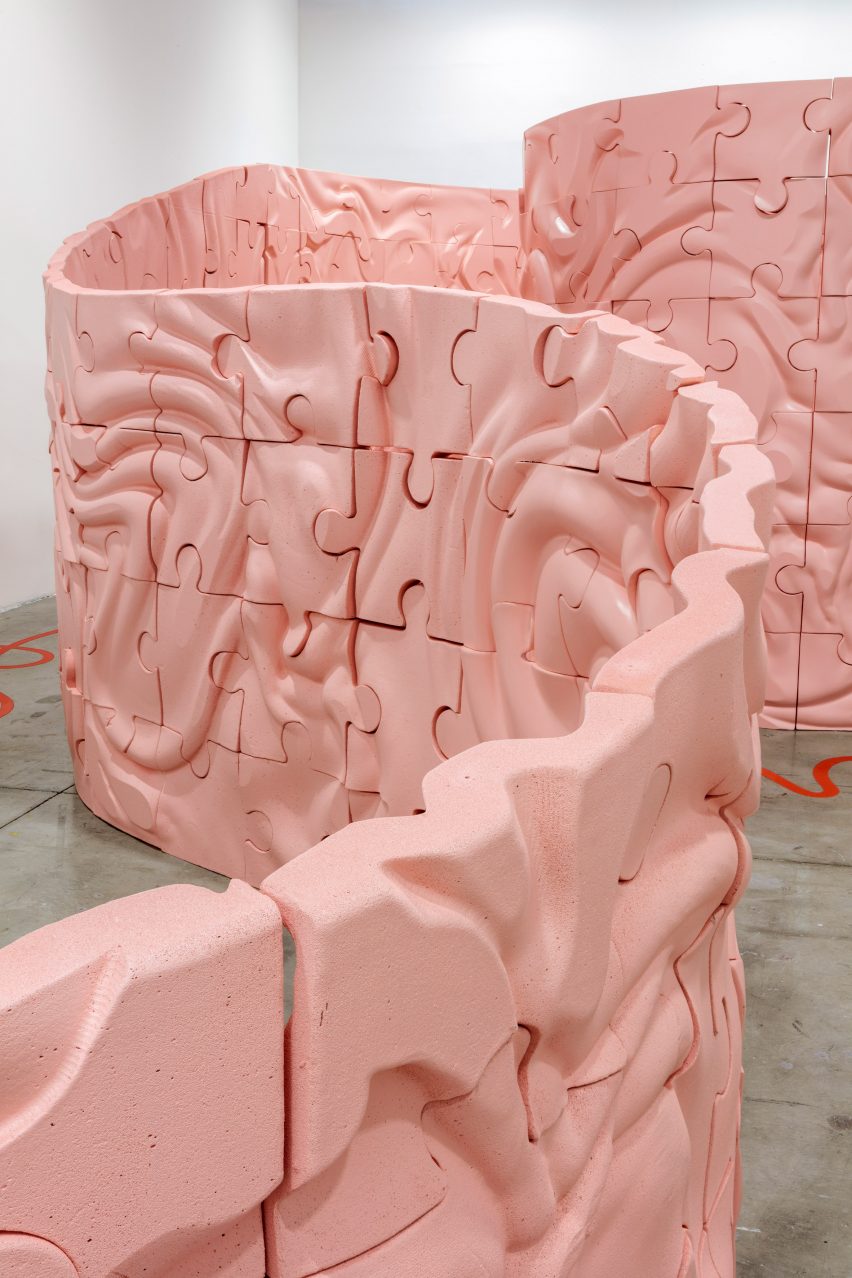
Brash Collective have also created an augmented-reality app to complement the work at the SCI-Arc Gallery, which is a dedicated space for experimental projects at the Southern California Institute of Architecture (SCI-Arc).
Virgil is the Making+Meaning coordinator and acting undergraduate program co-chair at the institution, while Alhinai is a fellow alum.
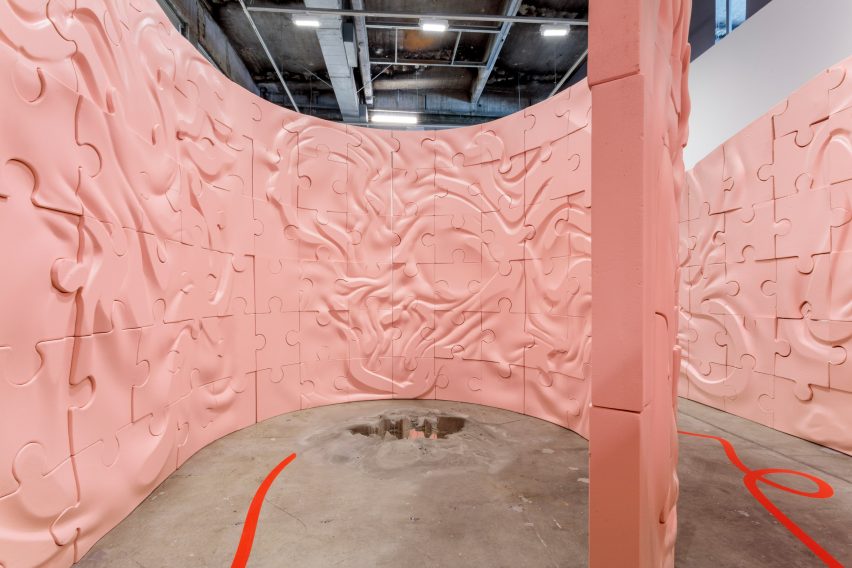
SCI-Arc has been the subject of criticism this year after prominent members of its faculty were seen to encourage students working long hours for little pay.
William Virgil: Intentionally Opaque is on at the SCI-Arc Gallery until September 11. See Dezeen Events Guide for all the latest architecture and design events taking place around the world.
The photography is by Joshua White.